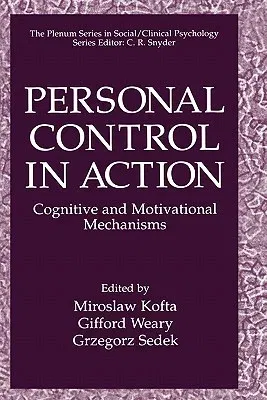Personal Control in Action: Cognitive and Motivational Mechanisms (1998)Hardcover - 1998, 30 June 1998

Qty
1
Turbo
Ships in 2 - 3 days
In Stock
Free Delivery
Cash on Delivery
15 Days
Free Returns
Secure Checkout

Part of Series
The Springer Social Clinical Psychology
Part of Series
Plenum Series in Social/Clinical Psychology
Part of Series
Plenum Series in Social/Clinical Psychology
Part of Series
Springer Series in Social/Clinical Psychology
Part of Series
Plenum Series in Social/Clinical Psychology Plenum Series in
Part of Series
Springer Series in Social Clinical Psychology
Print Length
460 pages
Language
English
Publisher
Springer
Date Published
30 Jun 1998
ISBN-10
0306457202
ISBN-13
9780306457203
Description
Product Details
Book Edition:
1998
Book Format:
Hardcover
Country of Origin:
US
Date Published:
30 June 1998
Dimensions:
23.39 x
15.6 x
2.69 cm
ISBN-10:
0306457202
ISBN-13:
9780306457203
Language:
English
Location:
New York, NY
Pages:
460
Publisher:
Series:
Weight:
857.29 gm